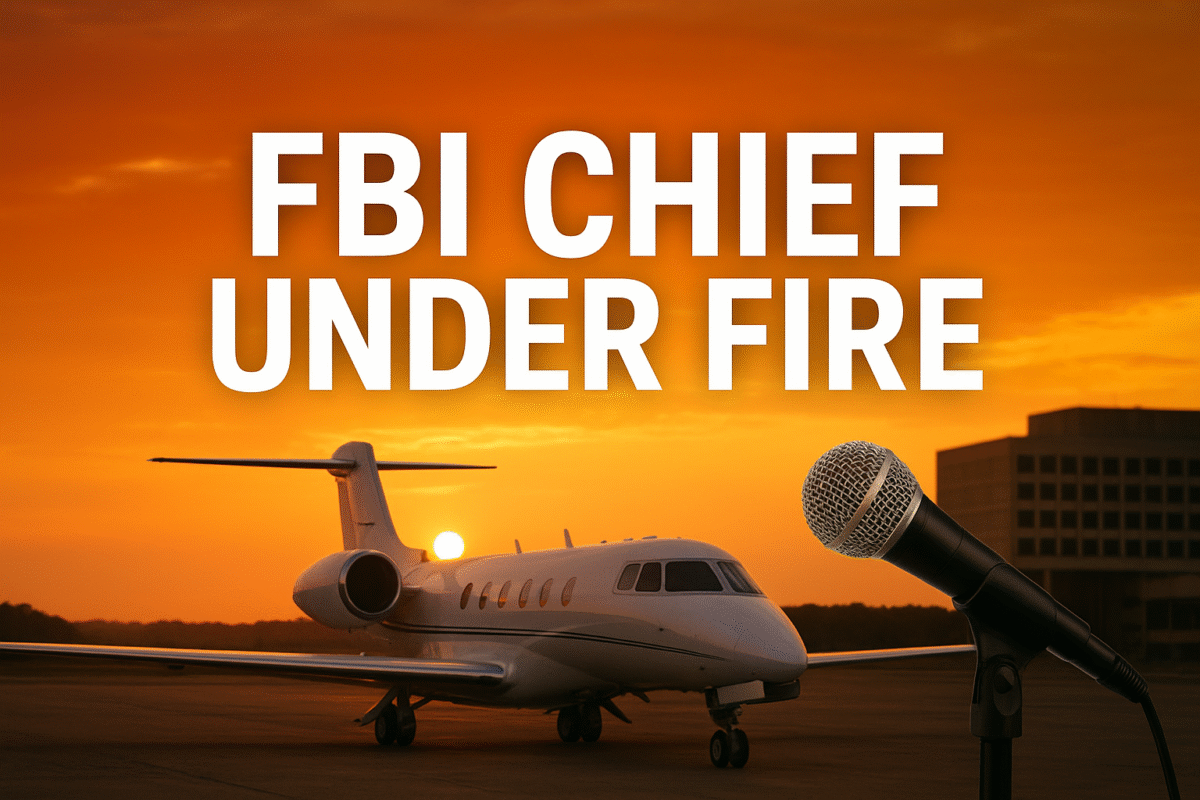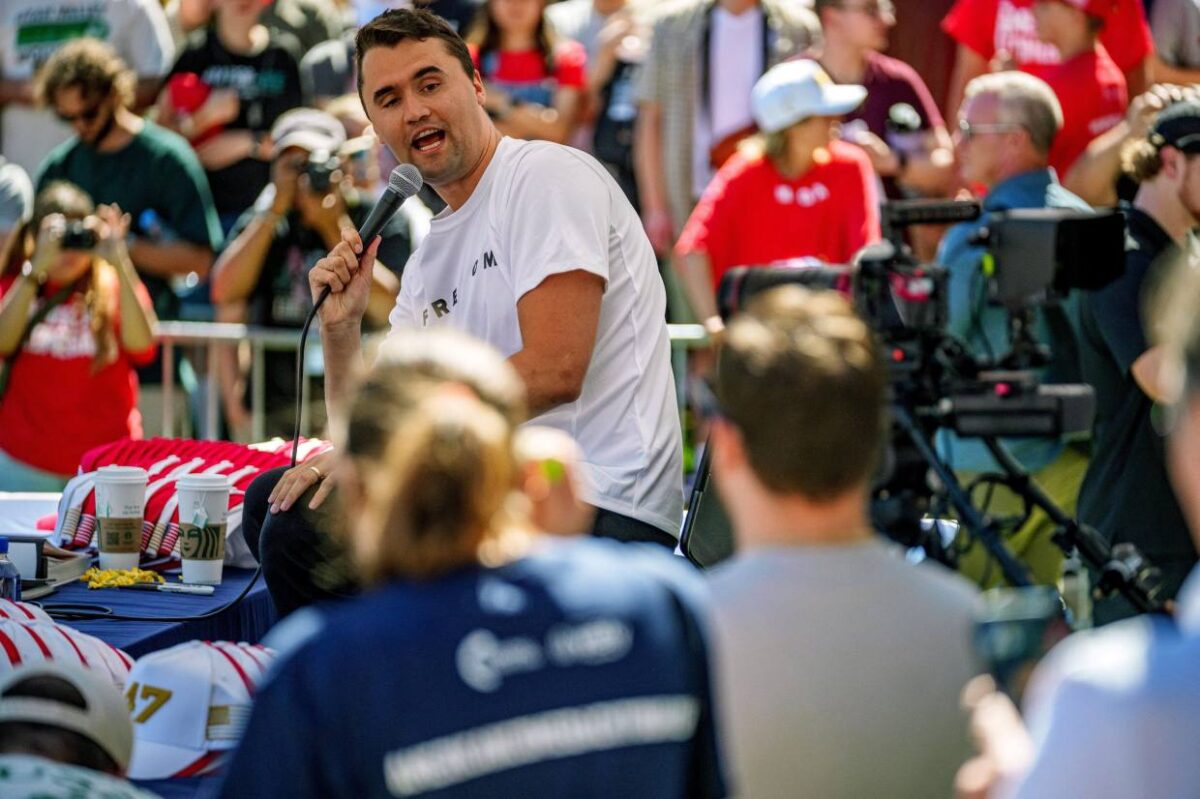What does Valhalla mean? Inside Kash Patel’s special message to Charlie Kirk

Kash Patel’s “Valhalla” Remark After Charlie Kirk Shooting Sparks Outrage Online
FBI Director Kash Patel has drawn both intrigue and criticism after closing a press briefing on the killing of conservative activist Charlie Kirk with an unusual farewell: “I’ll see you in Valhalla.”
The comment came during a media update on the FBI’s investigation into the September 10 shooting at Utah Valley University, where Kirk was fatally struck by a bullet while addressing supporters. Authorities have since arrested Tyler Robinson, a 22-year-old Utah resident, in connection with the attack.
Why “Valhalla” Stood Out
Valhalla, rooted in Norse mythology, is described as a great hall ruled by Odin where fallen warriors dwell until the end of time. Traditionally, it symbolizes honor in death for those who fought bravely in battle. While it has appeared in pop culture—from Marvel’s Thor to video games—the invocation of the term by the nation’s top investigator caught many off guard.
What Is Valhalla? A Deep Insight
Origins in Norse Mythology
Valhalla (Old Norse: Valhǫll, meaning “hall of the slain”) comes from ancient Norse mythology, the body of beliefs held by the Vikings and other Germanic peoples. According to these traditions, Valhalla is the majestic hall of the god Odin, located in Asgard, one of the Nine Realms.
The term itself combines valr (the slain) and hǫll (hall), literally translating to “Hall of the Fallen.”
The Role of Odin and the Valkyries
Odin, the all-father and chief deity in Norse mythology, is often associated with war, wisdom, and the afterlife. He presides over Valhalla, welcoming warriors who die honorably in battle. But not every fallen soldier gains entry—only those chosen by Odin’s maidens, the Valkyries, are brought to the hall.
These warriors, called the Einherjar, are considered Odin’s elite fighters. In Valhalla, they feast, drink mead, and battle each day—dying and reviving endlessly—until the time comes for the ultimate showdown: Ragnarök, the prophesied end of the world.
What Valhalla Represents
Valhalla is not merely a mythical afterlife; it embodies the Viking ideals of bravery, loyalty, and martial honor. For Norse warriors, dying in combat was the highest form of valor, and Valhalla symbolized eternal glory rather than rest.
Unlike the Christian concept of heaven, which emphasizes peace and salvation, Valhalla glorifies conflict, courage, and camaraderie among warriors.
Cultural and Historical Influence
The idea of Valhalla shaped Viking culture profoundly. It reinforced the warrior ethos, motivating fighters to face battle without fear of death. Archaeological finds, such as burial sites with weapons and armor, suggest that many believed they were preparing for a warrior’s afterlife.
Medieval texts like the Poetic Edda and Prose Edda, written in Iceland, remain the primary sources of Norse mythology and provide vivid descriptions of Valhalla’s golden halls, vast feasting tables, and the warriors who await Odin’s call.
Valhalla in Modern Culture
Today, Valhalla transcends mythology and appears across literature, films, music, and gaming. Marvel’s Thor films reference it, while video games like Assassin’s Creed: Valhalla and God of War immerse players in Norse-inspired worlds.
The concept has also been co-opted by fringe groups, including white supremacists, who misuse Norse imagery to promote extremist ideologies—a distortion of the mythology’s original spirit.
Key Symbolism of Valhalla
-
Courage in the face of death – death in battle seen as an honorable passage.
-
Eternal preparation – the idea of warriors training until Ragnarök.
-
Fellowship – communal feasts, drinking mead from the udder of a mythical goat (Heidrun).
-
Divine selection – not all are admitted, only those chosen by Odin through Valkyries.
Mixed Reactions Online
Social media quickly lit up with questions and jokes about Patel’s choice of words. Some users compared it to a “Marvel movie moment,” while others highlighted the irony of referencing a pagan warrior afterlife for a figure known for his Christian faith. Critics also warned that far-right groups often appropriate Norse symbols, raising questions about the cultural weight of Patel’s remark.
Before everyone loses their mind that Kash Patel just said “Rest now we have the watch. I’ll see you in Valhalla.” pic.twitter.com/SGCGEh7moQ
— Aaron Prager (@theaaronprager) September 12, 2025
I’m crying. Podcasters in Valhalla. omg https://t.co/18KkCoQ3Xm
— Joe Wrote (@joewrote) September 12, 2025
Charlie's in heaven, not in Valhalla you dork. Valhalla doesn't exist. pic.twitter.com/JqtNiUL8hX
— Kangmin Lee | 이강민 (@kangminjlee) September 12, 2025
Not sure why some people are taking umbrage with Kash Patel saying "I'll see you in Valhalla," to memorialize Charlie Kirk. It was beautiful and said with a spirit of someone you actually love. That was said as a message directly to Charlie, not as an official press statement. pic.twitter.com/0zyPKX0PZU
— Autism Capital 🧩 (@AutismCapital) September 12, 2025
Kash thinks he will see Charlie Kirk at Valhalla. This is why we need Christian leaders. During national moments like this, we don’t want pagan religion injected into Christianity. pic.twitter.com/5SF6F5PUeR
— Spence Rogers ✟ (@SpenceRogers) September 12, 2025
Ugh Im sick of saying this already. Till Valhalla is a warrior culture way of honoring our fallen. We say it in solidarity with the dead as if to say your sacrifice was not for nothing.
It has nothing to do with religion, it has everything to do with respect.
Everyone using it…
— ImNotWrongBruh (@ImNotWrongBruh) September 12, 2025
Kash Patel just said goodbye to Charlie Kirk:
“To my friend Charlie Kirk; rest now, brother, we have the watch and I'll see you in Valhalla.” pic.twitter.com/3LsZqJ7r2p
— Graham Allen (@GrahamAllen_1) September 12, 2025
Sorry sir, Valhalla doesn't exist. The kingdom of God exists and it's reserved for those who have repented of their sins and placed their faith in Jesus Christ. pic.twitter.com/zdIm8dihin
— Ken (@Ken_FiveSolas) September 12, 2025
Patel Under Scrutiny
The FBI director has faced mounting criticism in recent days, not only for his Valhalla statement but also for earlier missteps in the investigation. Before Robinson’s arrest, Patel prematurely announced that a suspect had been caught—a claim later contradicted by local authorities. The agency was forced to clarify that two people had been questioned and released before Robinson’s eventual detention.
What Happens Next
Investigators are piecing together Robinson’s motive, including his reported online activity and political views. Meanwhile, Kirk’s death has left a deep void among conservative circles, where he was regarded as both a polarizing voice and a rising force.
For many, Patel’s words—meant perhaps as a gesture of solidarity—have instead become a focal point of controversy. Whether viewed as a solemn tribute or an ill-chosen phrase, the remark has added another layer of drama to a case already gripping the nation.




